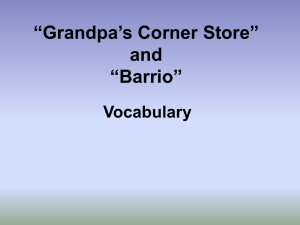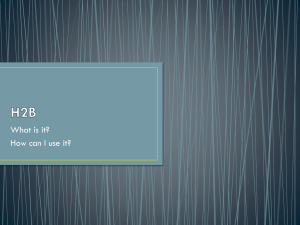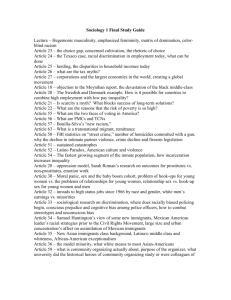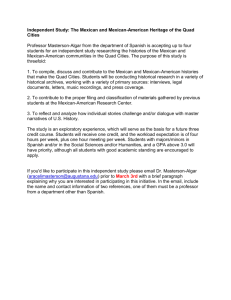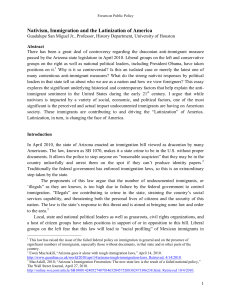World History II – SOL 7
advertisement
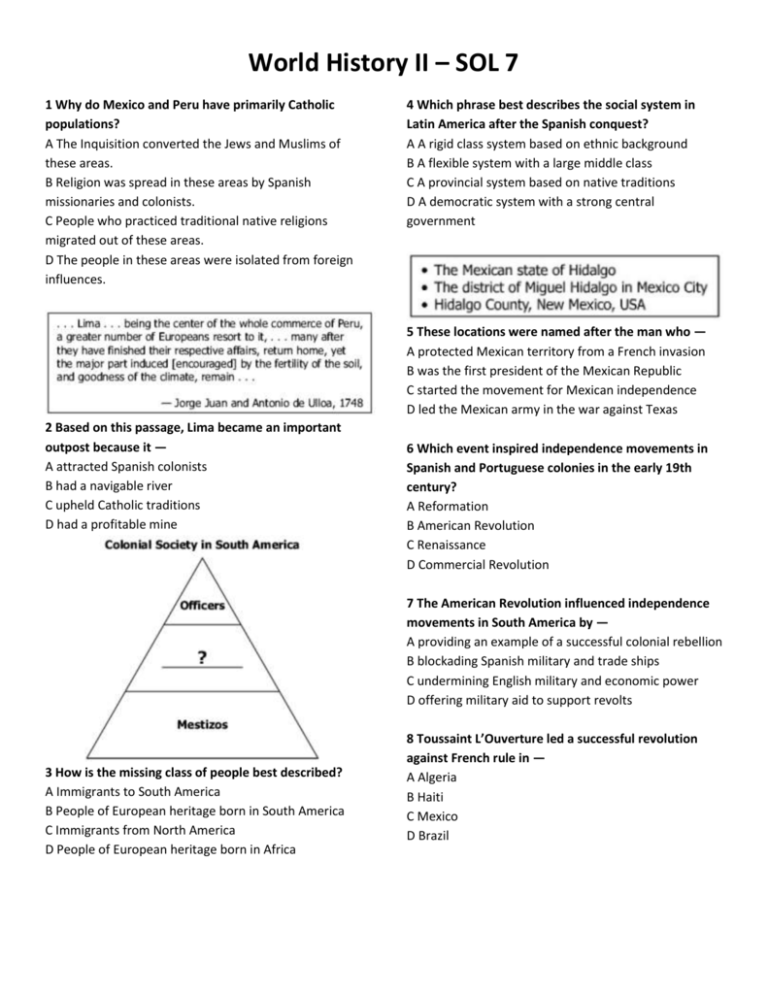
World History II – SOL 7 1 Why do Mexico and Peru have primarily Catholic populations? A The Inquisition converted the Jews and Muslims of these areas. B Religion was spread in these areas by Spanish missionaries and colonists. C People who practiced traditional native religions migrated out of these areas. D The people in these areas were isolated from foreign influences. 4 Which phrase best describes the social system in Latin America after the Spanish conquest? A A rigid class system based on ethnic background B A flexible system with a large middle class C A provincial system based on native traditions D A democratic system with a strong central government 5 These locations were named after the man who — A protected Mexican territory from a French invasion B was the first president of the Mexican Republic C started the movement for Mexican independence D led the Mexican army in the war against Texas 2 Based on this passage, Lima became an important outpost because it — A attracted Spanish colonists B had a navigable river C upheld Catholic traditions D had a profitable mine 6 Which event inspired independence movements in Spanish and Portuguese colonies in the early 19th century? A Reformation B American Revolution C Renaissance D Commercial Revolution 7 The American Revolution influenced independence movements in South America by — A providing an example of a successful colonial rebellion B blockading Spanish military and trade ships C undermining English military and economic power D offering military aid to support revolts 3 How is the missing class of people best described? A Immigrants to South America B People of European heritage born in South America C Immigrants from North America D People of European heritage born in Africa 8 Toussaint L’Ouverture led a successful revolution against French rule in — A Algeria B Haiti C Mexico D Brazil 9 Who led the independence movements that caused the changes shown in this table? A Hernando de Soto B Simón Bolivar C Napoleon Bonaparte D Vasco da Gama 10 Which region was protected from outside influence by the Monroe Doctrine? A1 B2 C3 D4 World History II – SOL 7 1 Why do Mexico and Peru have primarily Catholic populations? A The Inquisition converted the Jews and Muslims of these areas. B Religion was spread in these areas by Spanish missionaries and colonists. C People who practiced traditional native religions migrated out of these areas. D The people in these areas were isolated from foreign influences. 4 Which phrase best describes the social system in Latin America after the Spanish conquest? A A rigid class system based on ethnic background B A flexible system with a large middle class C A provincial system based on native traditions D A democratic system with a strong central government 5 These locations were named after the man who — A protected Mexican territory from a French invasion B was the first president of the Mexican Republic C started the movement for Mexican independence D led the Mexican army in the war against Texas 2 Based on this passage, Lima became an important outpost because it — A attracted Spanish colonists B had a navigable river C upheld Catholic traditions D had a profitable mine 6 Which event inspired independence movements in Spanish and Portuguese colonies in the early 19th century? A Reformation B American Revolution C Renaissance D Commercial Revolution 7 The American Revolution influenced independence movements in South America by — A providing an example of a successful colonial rebellion B blockading Spanish military and trade ships C undermining English military and economic power D offering military aid to support revolts 3 How is the missing class of people best described? A Immigrants to South America B People of European heritage born in South America C Immigrants from North America D People of European heritage born in Africa 8 Toussaint L’Ouverture led a successful revolution against French rule in — A Algeria B Haiti C Mexico D Brazil 9 Who led the independence movements that caused the changes shown in this table? A Hernando de Soto B Simón Bolivar C Napoleon Bonaparte D Vasco da Gama 10 Which region was protected from outside influence by the Monroe Doctrine? A1 B2 C3 D4

